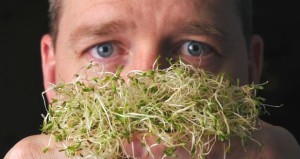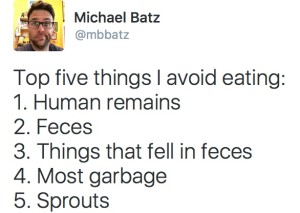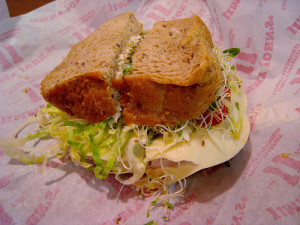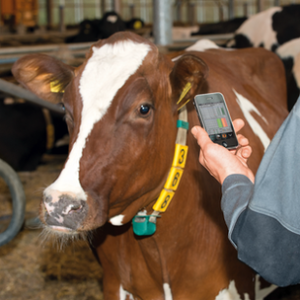Shannon Tonkin of the Illawarra Mercury reports that the defunct Wollongong food company fined more than $60,000 in court last week will most likely never pay the penalty, with financial records obtained by the Mercury showing the business was $144,000 in the red at the time the offences occurred.
 Betta Maid was convicted of 10 charges under the NSW Food Act in Wollongong Local Court last week and fined a total of $63,000.
Betta Maid was convicted of 10 charges under the NSW Food Act in Wollongong Local Court last week and fined a total of $63,000.
The court found the company was responsible for the spread of a rare strain of Salmonella through Illawarra Retirement Trust aged care homes on the South Coast and ACT between January and March 2015, resulting in the death of two residents.
Another 30 fell ill, with unhygienic food preparation surfaces, the presence of rodents (including feces), rusty equipment and unclean utensils to blame.
(I’d still like to know where the Salmnoella bovismorbificans came from. It’s commonly found in cattle and horses – dp).
Betta Maid was put under external management in early April after the matters came to light and has since been placed in the hands of a liquidator to be wound up.
Documents obtained through the Australian Securities and Investments Commission (ASIC) show the company owed an estimated $212,000 to 34 different companies around the time of the outbreak, including $131,000 in unpaid taxes.
A summary of the business’ financial position, signed by then-director Udo Boschan, estimated the value of the company’s assets at only $68,000, leaving a shortfall of about $144,000.
Local businesses owed money include Hasties Toptaste Meats in Wollongong, radio station Wave Fm, Sydney and South Coast Food in Dapto and Cazmont Computers in Shellharbour.
However, the chance of any creditors recovering what is owed to them appears lost, with a more recent ASIC statement filed by the liquidator saying it did not expect any creditors to receive their money. It is understood this would also apply to the court fines.
 Meantime, court documents have revealed Food Authority inspectors carried out a routine inspection of the Betta Maid facility at Unanderra two and a half months before the salmonella outbreak.
Meantime, court documents have revealed Food Authority inspectors carried out a routine inspection of the Betta Maid facility at Unanderra two and a half months before the salmonella outbreak.
Several concerns and contraventions of food handling laws were identified at the time, including rust and significant damage to equipment, some of which was unclean.
The company was given a month to rectify the situation, however the outbreak occurred before a further inspection took place.
Inspections and audits are never enough.










